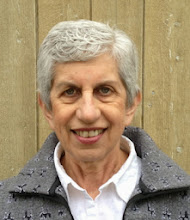
It is possible that the large family home might come in vogue again. If children move in and out of the house and grandparents live longer, healthier lives as the trends now suggest, that oversized house might actually have more use than just touting financial success. It is possible that many families might go back to three generational living (or four in some cases). We know that children are going through puberty earlier and earlier. Until we are able to understand why and change those conditions, there might be a teen period between ages nine and age fourteen or fifteen, and then a youthful parent stage between 15-16 and 30. Education might be earlier for those who manage not to have children and later for others. The general age of people in tertiary studies is going up, and that could well continue.
Childcare could be everyone’s responsibility and families will have to learn to clearly define their duties in relation to the children or the children will learn to manipulate very early. Where there are several children with their families, it will be even more important to define duties and responsibilities. The grandparent who gets to spoil their grandchildren will be few and far between. More people in the family will have to work in order to support the larger family group, but the major bread winners could be those between 30 to70 or even 75+ for those who are really healthy. The dream of having health, no responsibility and money could be a passing fancy.
With puberty coming younger and physical development staying much the same as it has for centuries, a space could open for a wise elder or two to be the family leader. The term "grand" parent might take on new meaning and Asian ancestor worship might be reinstituted. There will still be a role for young and older parents as well as grandparents to keep the immature children with a full-blown lust drive distracted by other interests and developmental activities. The pressure of being popular, liked and even loved could be pushed down to very young years which would be shocking for older generations. The relatively stable family home might provide some security for children that they might not have gotten in a nuclear family. Naturally, an extended family that is dysfunctional will not leave all the problems behind them. A split family or an individual might rejoin or create a new family much as is the trend today. It will not be easy to survive alone in a big family culture.
Not everyone will be able to purchase, build or maintain a family home. In that case, they might rent a number of apartments in the same building and make renting more respectable as it will not be a temporary solution, but a more permanent one. More independent oriented family members might like to be able to shut the door on their family and have a bit of alone time with a smaller group behind a locked door!
Given the logical consequences of more drastic weather and rising water levels, there could be lots of people on the move. They will try to move with their families and within their culture groups. Finding larger homes to house them and the land to place them on that isn’t appropriate for food production will be difficult. It will mean that density will push cities farther past their limits than they are now until people realize that they can’t have so many children as there is no room or food for them. As the total population comes down, stress illness and problems within families will start to ease off. Housing architecture will change. In some areas, housing clusters might develop with groups of small houses that share a larger kitchen and recreation area, while sleeping and storage areas will be separate. They will be surrounded by gardens, and places for the whole family to exercise. Other creative solutions to complex family living will surely develop. Families with a same sex partners will not make a bit of difference as many will choose to have children and will have older parents living with them. If children are not born into a family, the dynamics will be less complicated and when those family homes become empty, they will then be a contribution to a very slow moving housing market.
The swing generation in these families will have a difficult time adjusting to the loss of what they had dreamed would be their older years. Those having grown up in multi-generational households will have an easier time adjusting. It is very possible that Bungee families are just the beginning of this multi-generational living. Get ready to love the ones you are with, there will be less chance to run away or avoid generational problems.


No comments:
Post a Comment